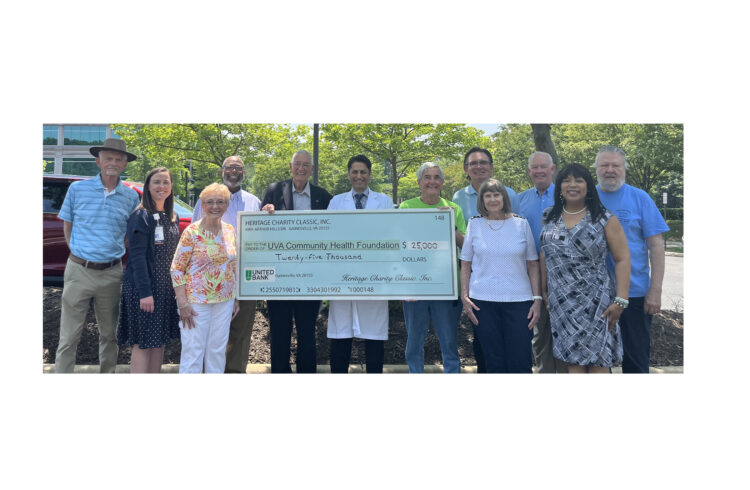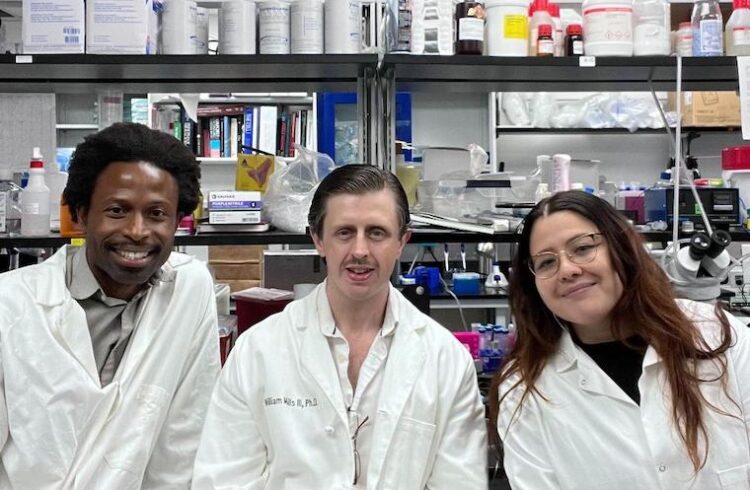
Dorian A Rosen, PhD, (left) and Alban Gaultier, PhD, found last year that fluvoxamine may stop the deadly inflammation known as sepsis. The drug is now being tested as a protective measure for patients with COVID-19.
An antidepressant medication is being tested as a potential treatment for COVID-19 after University of Virginia School of Medicine researchers determined it may prevent dangerous overreactions by the immune system.
Researchers at the Washington University School of Medicine in St. Louis are launching a clinical trial to determine if the drug fluvoxamine can prevent “cytokine storms,” in which the body is flooded with immune cell mediators called cytokines. This frenzied immune response can lead to life-threatening organ failure and has been a major concern in patients with severe COVID-19 infections.
UVA researchers Alban Gaultier, PhD, and Dorian A Rosen, PhD, found last year that fluvoxamine may stop the deadly inflammation known as sepsis, in which the immune response spirals out of control. The drug, they determined, reduced the production of cytokines. It proved effective in mice as a preventative treatment for sepsis, and now it will be tested as a protective measure for patients with COVID-19.
“I am excited to see the results from this clinical trial," said Gaultier, of UVA’s Department of Neuroscience, the Center for Brain Immunology and Glia (BIG) and the Carter Immunology Center. “If proven effective in decreasing the symptoms of COVID-19, this treatment would be a safe and affordable option for fighting the pandemic. Further, this approach could also be applied to other inflammatory conditions driven by cytokine storms, such as sepsis.”
About the COVID-19 Trial
Washington University’s Eric J. Lenze, MD, plans to test fluvoxamine in 152 patients with COVID-19 in Illinois and Missouri. The patients will receive either fluvoxamine or a placebo while quarantined at home. In addition, they will receive thermometers, fingertip oxygen sensors and automatic blood pressure monitors. This will allow them to report their oxygen levels and other vital signs to the research team each day, either through phone calls or online.
“Our hope is that by targeting patients who are well enough to be at home, we can give them fluvoxamine and prevent them from getting sicker and needing to go to the hospital,” said co-investigator Caline Mattar, MD, of Washington University’s Division of Infectious Diseases.
Even if the drug proves ineffective against COVID-19, trial participants will benefit from the close supervision by doctors, who will help them determine if they need additional treatment, the researchers said.
“Using a psychiatric drug to treat COVID-19 may sound counterintuitive, but it’s no more counterintuitive than using a malaria drug,” Lenze said. “This drug has been around for decades, so we know how to use it safely. If effective, it could be an ideal drug to repurpose for outpatients with COVID.”
For More Information
Additional information on the trial is available here. To keep up with the latest medical research news from UVA, subscribe to the Making of Medicine blog.



